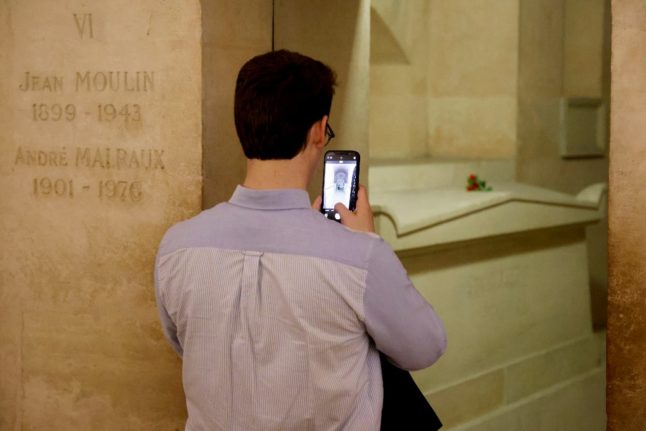Inside France is our weekly look at some of the news, talking points and gossip in France that you might not have heard about. It’s published each Saturday and members can receive it directly to their inbox, by going to their newsletter preferences or adding their email to the sign-up box in this article.
Republican values
Disturbing news from western France where the mayor of Saint-Brevin-les-Pins has resigned his post after an arson attack on his home. He and his town had become a target for the far-right, with demonstrations by Reconquête (Reconquest – the party of failed presidential candidate Eric Zemmour) over plans for a new centre for asylum seekers in the town.
The mayor supported the plans, and had pointed out that there “has never been the slightest problem” with asylum seekers in the years they had been hosted in his town.
It’s a stark reminder that the far-right don’t need to win elections in order to damage a country. Criticism has also focused on the government, which is accused of failing to offer the mayor enough support.
The front page of leftwing daily Libération says simply ‘abandoned by the republic’ next to a picture of the mayor in front of the torched cars at his home.
🚫 Démission du maire de #SaintBrevin : abandonné par la République. C'est la une de @Libe vendredi
Lire : https://t.co/nj2k4mQp7h pic.twitter.com/tRfagNoR8q
— Libération (@libe) May 11, 2023
Jour fériés
May is the month of many holidays in France – two long weekends already and two more to go – and if you’re looking for exhibitions to visit in Paris on your days off, I can highly recommend the very interesting Des cheveaux et des poils (hair and body hair) at the Musée des Arts décoratif – all about how hair and body/facial hair has been used for social signalling down the centuries – and the free street art exhibition at Hotel de Ville.
Second visit to the brilliant (free) street art exhibition at Hotel de Ville, really recommend. (2nd visit because the first time the security guard hustled us out 15 minutes before closing time, I think he was on a promise) pic.twitter.com/eRHyBYpbrx
— Emma Pearson (@LocalFR_Emma) May 6, 2023
Resistance
For something more historical, I really like the Musée de la Libération, which has a good section on one of the subjects of this week’s Talking France podcast – the resistance leader Jean Moulin.
Download here or listen on the link below to hear more about the extraordinary Moulin, plus ‘lazy’ French workers, Ryanair taking on French strikers and a few tips on wine-tasting.
Douze points
Also on the podcast, I was allowed to (briefly) wax lyrical about Eurovision – and especially France’s troubled relationship with the increasing use of English-language songs.
What’s striking looking at the list of all 69 winners in the contest’s history is how many of the early winners were sung in French – and how many of the more recent ones are sung in English. French and English remain the official languages that the contest is presented in (hence the dreaded nul points) but the song titles give an interesting insight into the rise of English in Europe.
Inside France is our weekly look at some of the news, talking points and gossip in France that you might not have heard about. It’s published each Saturday and members can receive it directly to their inbox, by going to their newsletter preferences or adding their email to the sign-up box in this article.




 Please whitelist us to continue reading.
Please whitelist us to continue reading.
Member comments